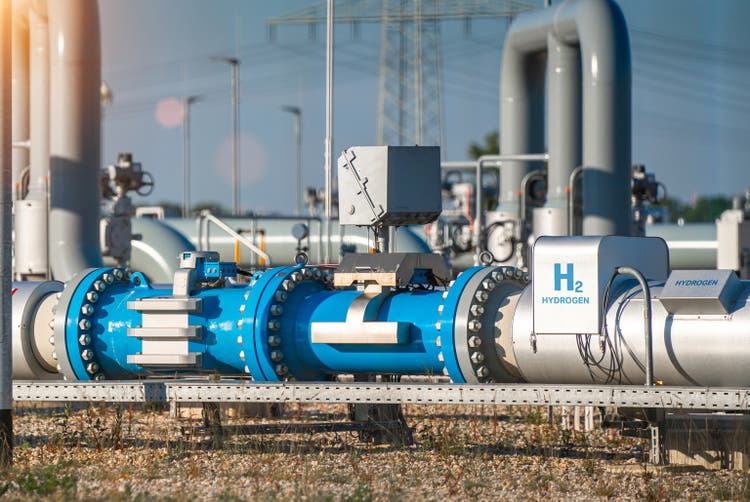audioundwerbung/iStock via Getty Images
More than a third of Nikola’s (NASDAQ:NKLA) float is being sold short with bears betting that the 71% collapse year-to-date still has more legs to run. The persistent short interest in the stock is understandable. The company has been marred in controversy since it went public and remains a loss-making entity amidst a risk-off environment. The bearish argument is multifaceted but broadly coalesces around three main points.
The first is historical. Nikola started its public journey with fraudulent statements from former CEO and founder Trevor Milton who was convicted of fraud last month. This era saw the company briefly boast a higher valuation than Ford (F) before short seller Hindenburg Research brought it down with its 2020 report. How to Parlay An Ocean of Lies, innocuously titled, became symbolic of the euphoric zeitgeist that gripped retail and institutional investors alike in a period where stocks traded on nothing but hype, hope, and vibes. That a pre-revenue EV upstart had a higher valuation than one of the largest traditional automakers in the world was of course ludicrous. However, this is not 2020. At its current market cap of $1.35 billion, Nikola is down more than 96% from its peak $34 billion valuation. The landscape has changed but bears are still holding on to the Hindenburg report as though it describes the current context. Nikola should not be stuck being defined by its past forever.
How Is Nikola Still Even A Company?
The second is financial. That bears state that Nikola does not have a viable business model and will have to lean on dilutive equity raises to remain a going concern beyond the runway afforded by the current $315 million in cash and equivalents. Further, with this down materially against $497 million in the year-ago quarter, it is only a matter of time until Nikola’s cash burn places it on the long list of defunct automobile manufacturers. The first half of the 20th century saw the rush of competing efforts to capture what was clearly going to be the future of transportation turn into an ocean of failed dreams. Mirroring the spirit of this era, Nikola would face a fate that sees it as a footnote rather than the header when the history of the beginning of the decarbonization of transport is written.
Indeed, manufacturing a vehicle is not easy. It’s a brutal and cash-intensive process that Tesla’s (TSLA) Elon Musk often described as hell. Nikola realized a cash burn from operations of $157.6 million which when aggregated with capital expenditure of $51.1 million saw the company burn through $208.7 million in cash during the quarter. The company is manufacturing its Tre BEV trucks at its own facility in Coolidge, Arizona. This produced 75 Tre BEVs during the quarter for revenue of $24.2 million, a negative gross profit of $30.2 million, and a net loss of $236.2 million. These results are simply not prudent for long-form viability. Critically, the bears are right on this one. The company is staring at its collapse if revenue does not rise quickly with underlying profitability rising even more.
A purchase order for 100 Tre BEVs from Zeem Solutions indicates management is getting a start on this. But any such manufacturing will be a drain on an already dwindling cash position creating a chicken-and-egg scenario. To survive Nikola has to manufacture plenty of trucks to sell but to manufacture plenty of trucks to sell requires using cash which restricts the ability of the company to survive. On the back of this, the near-term outlook for the company is likely to remain wrapped with cash burn and capital destruction. There is simply no way to plug the coming gap without an intense dilutive share offering or heavy cuts that restrict the ability of Nikola to meet its orders.
The Drive To Net-Zero Continues
The final focus is on the industry itself. The decarbonization of heavy-duty trucking is seemingly not a sure thing. BEVs are extremely expensive for freight trucks and simply do not get the same range that their gas and diesel-powered competitors do. Hence, even against the Inflation Reduction Act, the extent to which logistics firms will take up more expensive and less effective BEVs might prove to be patchy and best and largely non-existent at worst. Hydrogen fuel cell electric trucks offer more functionality but the company does not expect to start manufacturing and delivering these until 2024 when phase 2 expansion of its Arizona facility is completed.
The bears consider the future of zero-carbon transport to be unclear with a not immaterial number of competing options from other young companies and experienced automakers alike. However, the drive to net zero is well underway with strong growth set to be realized in the decade ahead and catalyzed by the Inflation Reduction Act. This large expanding TAM continues to be the prize and could come to represent one of the most significant decade-long growth opportunities available to stock market investors. Nikola could very well find itself swept away by better-capitalized companies as the industry grows but if cash burn is brought under control the company can shed its past and become a viable economic entity. Shares are to watch for now and not to be owned.


Be the first to comment